SR 23
SUSTAINABILITY REPORT
The effects of human activity on our planet are becoming increasingly apparent. It is therefore crucial that we make an active effort to bolster measures that are already in place, to take further action to offset the various damaging developments that have been happening, and to promote positive change.
The principle of sustainability is nothing new at Bene – it has been deeply embedded in our culture for a long time. We have already introduced numerous key measures in the past with the aim of reducing our carbon footprint and this is something we are planning to build on further. For us, it is not just about seeking profitable paths; we also need to set our sights on ideas that are sustainable in the long term. We embrace our responsibility towards society and make sure that our business activities have a minimal impact on the environment.
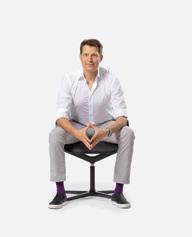
newly developed products can be sorted into separate component types and are designed to be durable and repairable;
The goal we set ourselves is to produce furniture that offers both functional and aesthetic appeal in a way that conserves resources. Our main expertise lies in innovation and design – and in linking the two together. This is how we are able to ensure the lasting success of our business, while also protecting the environment and offering our customers added value.
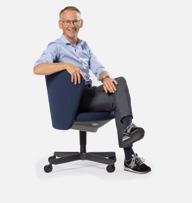
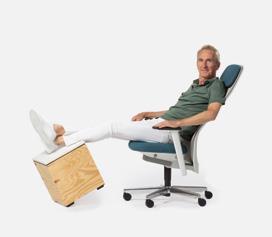
Yet sustainability is about more than just mitigating our impact on the environment. We also pay close attention to the wellbeing of our employees. By guaranteeing equal opportunities and promoting diversity within our company, we create a positive working environment where everyone can achieve their full potential. We encourage all of our employees, partners and customers to continue to actively support us in achieving our sustainability goals. Every single contribution makes a difference, no matter how big or small. This is how we are building a sustainable future together at Bene.
Best regards,
DEAR READERS, THANK YOU FOR TAKING AN INTEREST IN BENE’S COMMITMENT TO SUSTAINABILITY.
Michael Fried, Manfred Huber, Benedikt Wolfram Bene Executive Board
The best way we can do this is through sustainable production, which is why we develop recyclable products and focus on using environmentally friendly and resource-efficient materials. Wherever possible, we use recycled materials to help conserve natural resources. Our
to avoid waste.
Manfred Huber
Benedikt Wolfram
Michael Fried
This year’s publication is our fourth sustainability report. This condensed version provides a compact overview of what matters to us here at Bene. If you would like more background information and details, we also offer an extended version containing all aspects, figures and information we are obliged to present according to the Global Reporting Initiative (GRI). The Sustainability Report 2023 covers the calendar years 2021 and 2022.
System boundaries : Unless otherwise specified, this report is based on the following “system boundaries”: economic and employee-related key figures on the one hand – which refer to Bene GmbH as a whole and to the sales offices in Austria and abroad – and environmental data on the other, which refers to the production site in Waidhofen an der Ybbs. Since this is Bene’s only manufacturing site, production is fully covered. The production of trade goods and OEM goods (Original Equipment Manufacturer) is not covered.
OVERVIEW OF 2021 AND 2022 04 FOCUS ENVIRONMENT 08 FOCUS ON SOCIETY 09 FOCUS COMPANY 10 FOCUS ON PRODUCTS 11 INNOVATION 12 RETHINKING DESIGN PROCESSES 14 SUSTAINABILITY AS A SOURCE OF INSPIRATION 16 MILESTONES 22 RESOURCES AND PRODUCTION 24 MATERIALS 27 RAW MATERIALS AND SUPPLIERS 27 PACKAGING AND TRANSPORT 32 ELECTRICITY AND ENERGY 32 WASTE MANAGEMENT 33 EMPLOYEES 34 OBJECTIVES & OUTLOOK 40 04 12 24 34 40
CONTENT
OVERVIEW
Milestones in the areas of environment, society and business
OVERVIEW
OF 2021 AND 2022

5
YEARS OF PROGRESS
Product innovations, certifications, CO 2 savings and a new management. The most important developments at a glance.
In 1790, a small joinery was founded in the heart of Lower Austria’s Mostviertel region. The same year Leopold II was proclaimed Holy Roman Emperor, and another four emperors would follow after him before the Empire was dissolved, and Austria became a republic 1918. The Bene joinery bore witness to many historical events before it began producing office furniture on an industrial scale in 1951, 160 years after the business was established. Since that point, three quarters of a century ago now, we have been through yet more exciting times and watched the office concept evolve – and Bene with it.
BENE IS SYNONYMOUS WITH INSPIRING OFFICE AND WORKING ENVIRONMENTS.
With our concepts, products and services, we turn the office into a living space where people can not only work well, but also enjoy what they do. The high standards that Bene has always maintained in terms of functionality, quality and design can be felt in every single project. With an integrated order processing system and consistent just-in-time production, Bene has one of the most modern and efficient production facilities for office furniture in Europe. Bene is transforming itself in a sustainable, growthorientated and innovative way into a European market leader.
In addition to its production facilities, Bene GmbH runs its own sales offices. Spread across five countries, these branches are registered as companies in their own right and operate as subsidiaries of Bene GmbH.
The ownership structure
SUBSIDIARIES
IN 2021 AND 2022 WE FOCUSED ON THE FOLLOWING OBJECTIVES :
Increase customer satisfaction
Reduce the carbon footprint of our products
Process raw materials and energy from sustainable sources
Continue to develop expertise and make it sustainable
Promote social community and health
More than 35 measures were successfully implemented on the way to achieving these objectives.
99% 0,5% 0,5% 100% 100% 100% BENE GMBH GERMANY
BENE GMBH Austria, Italy,
Arab
BGO HOLDING GMBH ABAHO GMBH GROSSO HOLDING GMBH BENE PLC GREAT BRITAIN BENE OFFICE FURNITURE IRELAND LTD. BENE WARSAW SP.Z.O.O. POLAND BENE INDIA OFFICE FURNITURE PRIVATE LTD. 100% 74% NEUDÖRFLER OFFICE SYSTEMS HALI BGO MONTAGE & LOGISTIK
Belgium, Switzerland, France, United
Emirates
OVERVIEW | INNOVATION | RESOURCES AND PRODUCTION | EMPLOYEES | OBJECTIVES & OUTLOOK | 7
FOCUS ON THE ENVIRONMENT
Our environmental impact across all areas of the company is continually monitored and documented. Since 2011, this information has been presented in sustainability reports. Bene also introduced an environmental management system in accordance with the EN ISO 14001 standard in as early as 2006. Ever since then, all projects – no matter how big or small – that have implications for the environment are included in the sustainability programme and their implementation is assessed based on sustainability criteria. Despite stepping up production in 2022, we have managed to cut the level of emissions generated during our business activities from 621 to 542 tonnes of CO 2e 1 (-12%). This includes all emissions directly attributable to the company, such as those generated from heating and fuel used by the vehicle fleet, and those that arise from producing electricity purchased by the company (i.e. scope 1 and scope 2 emissions according to the Greenhouse Gas Protocol). The scope 1 emissions were cut to half the level produced between 2016 and 2019. This is largely due to a reduction in the use of fossil fuels for cars owned by the company and less use of oil for heating.
In terms of procuring new company cars for our staff, our focus is shifting more towards electric drive systems. By the end of 2022, our fleet already included 14 electric cars and four hybrid ones, out of 133 cars in total. Four new and efficient biomass boilers (including electrostatic precipitators) were installed in 2022 to replace the old wood chip boilers and oil-fired heating systems. These offer more efficient combustion, which boosts efficiency and reduces emissions. Wood waste from our production site is used as fuel.
In 2021, we became the first furniture manufacturer in Austria to have selected products certified according to the EU Ecolabel. This environmental label, which was launched by the European Commission in 1992, is awarded to products proven to be particularly sustainable. We managed to minimise the amount of air travel by employees for business trips, keeping it well below the prepandemic level. 880,000 kilometres were flown in 2022 and 450,000 in 2021, compared to 2,200,000 back in 2019. One of the key steps towards achieving the comprehensive circular economy we are aiming for is to recycle waste from production. In 2022, 2,500 tonnes of waste material were delivered to chipboard manufacturers to be made into new tabletops.
Comparative data (since 2020, Bene has been purchasing electricity generated from hydropower, which explains the sharp drop in scope 2 emissions):
1 CO 2e = CO 2 equivalents.
Emissions in tonnes CO 2e 2016 2017 2018 2019 2020 2021 2022 Scope 1 1,035 1,040 1,117 1,085 921 597 516 Scope 2 2,397 3,689 4,105 4,075 23 24 26
This unit includes all other greenhouse gases emitted apart from CO 2, converted into CO 2 values.
Reduction of CO 2 emissions 2022 despite increase in production
621t 542t
For instance, we asked them what is crucial to them when it comes to buying office furniture: 2
FOCUS ON SOCIETY
Being a leading company makes us an attractive employer within our region. We are conscious of the wide-ranging impact we have on society and take advantage of all the different opportunities this creates. We are always open to enquiries from the wider social community. In 2022, we had the pleasure of welcoming some 1,600 visitors to our production site in Waidhofen, including schoolchildren, students, trade partners and architects.
Thanks to the consistent implementation of the environmental management system according to ISO 14001, this results in continuous improvements as well as checks in the form of internal and external audits. This serves as a guarantee for all our stakeholders that we are constantly pushing ahead in terms of ensuring sustainability at Bene.
When we develop new products, we keep up constant communications with everyone concerned, and we involve them on aspects relating to sustainability too.
The people we asked indicate that they are quite likely (with an average rating of six out of ten in each case) to:
- buy reclaimed second-hand furniture
- find out about how office furniture is manufactured before buying it
- approach Bene if they are looking for sustainable office furniture
Further feedback is being used to help develop measures and set the focus for the sustainability report. One question that came up, for example: "How about creating easy-tocover seating furniture?" We have accepted this feedback and are working on the development.
OVERVIEW | INNOVATION | RESOURCES AND PRODUCTION | EMPLOYEES | OBJECTIVES & OUTLOOK | 9 2 Stakeholder survey, n=166, period: March/ April 2023
Interchangeability of components Ergonomics Functionality Availability Individuality Sustainable materials „Made in Austria“ Innovation Transparent supply chains Personalised advice No tools required for assembly Repairability Design Convenient and contemporary use Price Durability
FOCUS ON THE COMPANY
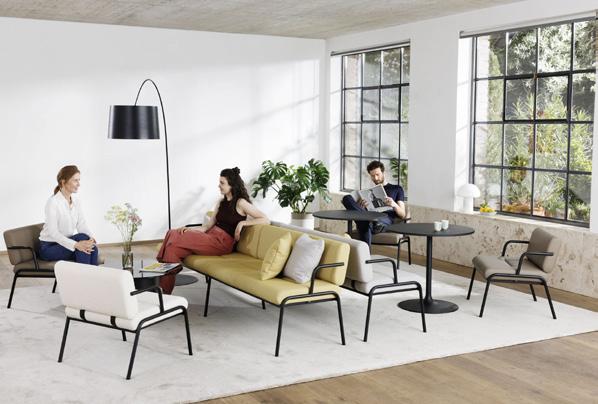
Responsible management is the key to ensuring lasting success. There was a prevailing sense of optimism and progress in 2021 and 2022 following the turbulent times since the start of the pandemic. Sales increased by 29% from 2021 to 2022, climbing from EUR 136.3 million to EUR 176.4 million.
Bene’s innovative strength stood at 31% in 2022. This is measured based on how many sales are generated with products that have been on the market for less than five years. Bene also decided to change the ERP (Enterprise Resource Planning) system in production, in order to harness existing resources as economically as possible. This new system has not only helped us improve business processes, but it also provides key performance indicators and thus essential information to aid corporate management. 2022 also saw the acquisition of a powder coating plant, enabling us to create greater flexibility and shorten response times.
The Executive Management team was expanded from two people to three in mid-2022. Manfred Huber is now responsible for the operational processes and technical progress of the company as the new Chief Technical Director (COO). The new Chief Financial Officer (CFO) is Benedikt Wolfram, who is responsible for both the Finance & Legal department and matters relating to digitalisation. Together with longstanding Executive Board member Michael Fried (Sales, HR, Marketing and Innovation), they form the new Bene Executive Board. The framework conditions for environmentally friendly and high-quality economic activity have been, and still are being, put in place at corporate level. To pass on relevant knowledge within the company, new employees are provided with comprehensive training and information on sustainability topics is shared with other interested parties (including schoolchildren and customers) through guided tours.
FOCUS ON PRODUCTS 2021
Bene For Home
We entered the B2C (Business to Consumer) market for the first time with BENE FOR HOME, which means it is now offering its trend-setting workstation solutions for the home directly to end customers. By making this move, the Austrian expert for modern working environments is responding to the increased demand for innovative solutions for home offices and presenting a diverse product portfolio for the private consumer area.
bFRIENDS
The bFRIENDS collection is manufactured using a 3D printing process. All bFRIENDS products are made from the petroleum-free bioplastic PLA , which eliminates the use of fossil raw materials in all phases of production. The plastic itself is both recycled and recyclable, so that each accessory can be incorporated into new products when it reaches the end of its life.
2022
CASUAL by Bene
The CASUAL by Bene collection, featuring the CASUAL Bench, Lounge Chair and Table, creates spaces for interacting and connecting within the office environment. Bene made sure that sustainability was a priority in the CASUAL range right from the product development stage: the entire design is based on the resource-saving use of materials.
PORTS und STUDIO by Bene Chairs
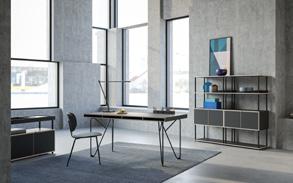
The new PORTS complements the PORTS design line developed in 2019 and not only brings elegance to the office, but also lends it a homely atmosphere. The new STUDIO Chair, on the other hand, embodies above all comfort, functionality and aesthetics, and does so in perfect balance. It expands the STUDIO design line that has been in existence since 2017.
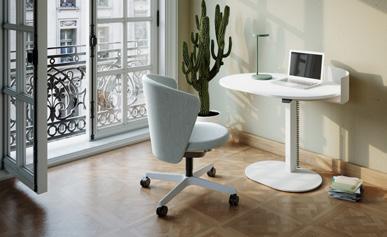
OVERVIEW | INNOVATION | RESOURCES AND PRODUCTION | EMPLOYEES | OBJECTIVES & OUTLOOK | 11
INNOVATION
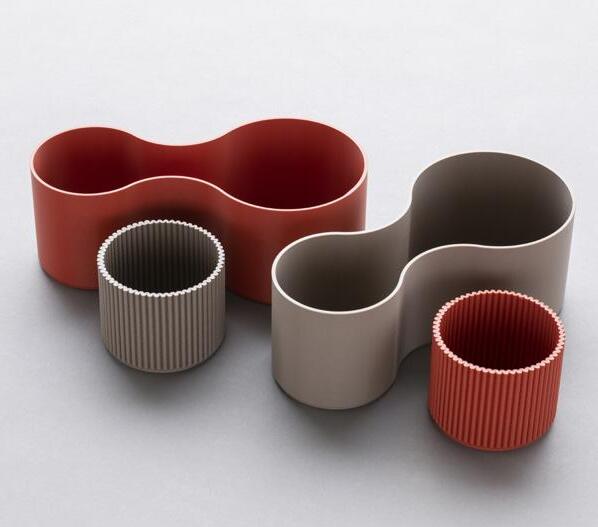
INNOVATION
Circular Economy, recycling, longevity and the repair of products are becoming increasingly important to us
13
RETHINKING DESIGN PROCESSES
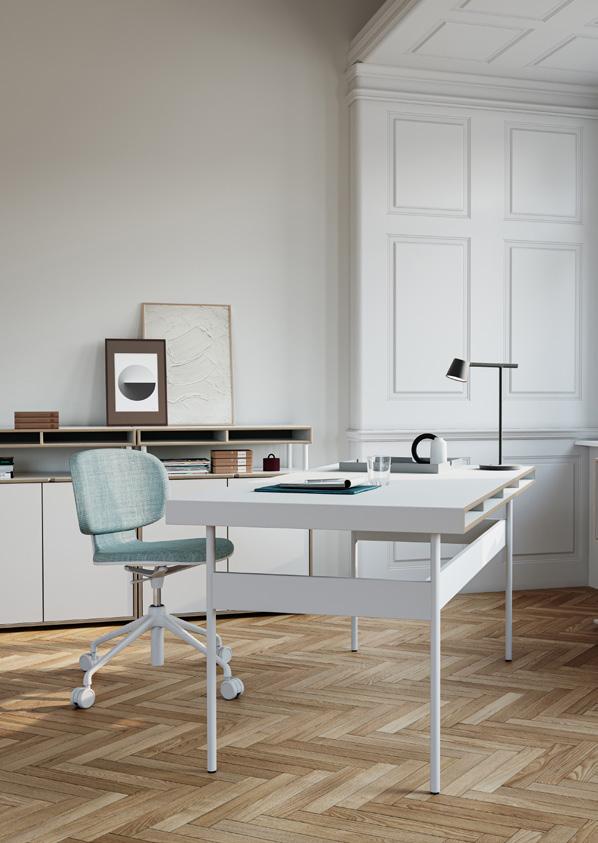
Circular economy, recycling, durability and repairability of products are becoming increasingly important in the furniture industry. We have long recognised that sustainable design and production not only have environmental benefits, but can also create economic opportunities and improve the customer experience.
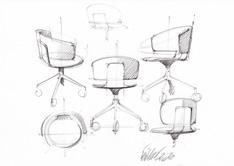
The circular economy is at the heart of these efforts. Instead of treating products as disposable, the focus is shifting towards making sure they are still useful beyond their primary life cycle.
This involves processing materials that can be reused or recycled or which are biodegradable. Our efforts to promote recycling are helping us to reduce waste and use resources more efficiently.
Another important aspect is the durability of
our
products.
By opting for high-grade materials and sound workmanship, we can give them the lasting quality they need to provide pleasure for many years to come. This not only offers buyers a more cost-effective solution, but also reduces the need for new resources and the environmental impact of production.
Yet another key factor that is gaining prominence at Bene is repairability. Designing furniture on a modular basis that makes it is easy to repair prolongs its useful life even further and means there is less need for spare parts or new products.
Promoting the circular economy, recycling, durability and repairability is not just good for the environment; it also brings benefits for both us and our customers. Using recycled materials and thanks to the efficient use of resources, we save costs. Moreover, customers appreciate durable furniture that they can adapt to their requirements and repair if necessary, so it can provide a significant boost in terms of customer satisfaction and brand loyalty.
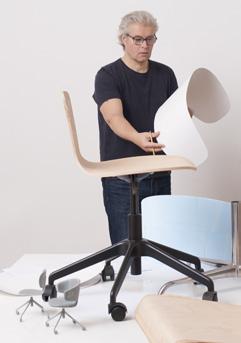
OVERVIEW | INNOVATION | RESOURCES AND PRODUCTION | EMPLOYEES | OBJECTIVES & OUTLOOK | 15
SUSTAINABILITY AS A SOURCE OF INSPIRATION IN PRODUCT DEVELOPMENT
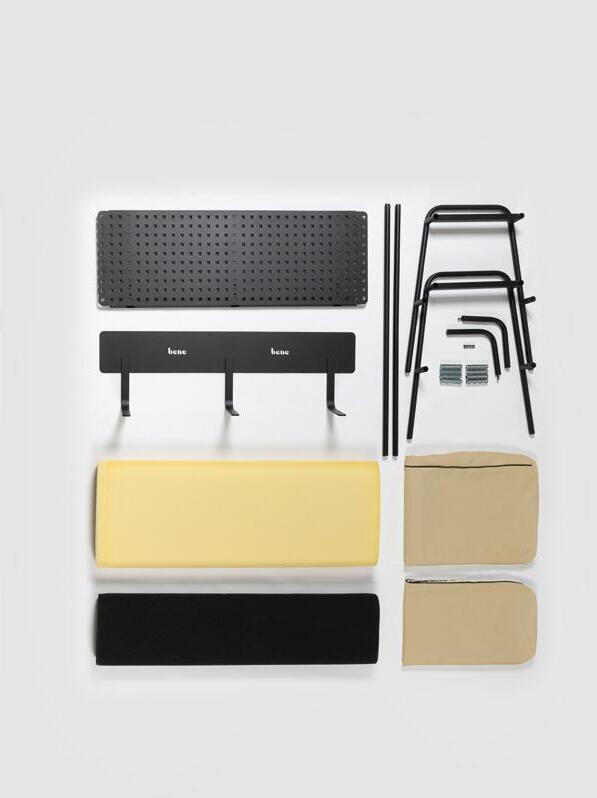
Our objective is to produce durable and timeless furniture for the workplace. To achieve this, sustainability is incorporated into all areas of the company – from product development, purchasing, production and logistics right through to product recycling. Many of our furniture items can be repaired, reconfigured and sorted into separate component types, as this is the only way to avoid waste in the long run. All new product developments meet these criteria. Bene as a company and its products have already been awarded various sustainability certificates, which shows that our efforts are being recognised. Nevertheless, we are constantly searching for new solutions to make our products and services even more sustainable.
“We are rethinking our design processes: The entire process of product development is now significantly based on ecological requirements. After all, it is our responsibility as a company to provide customers with products that are as sustainable as possible,” explains Patricia Möckesch, Head of Innovation & Design at Bene. This is the only way to bring about positive changes for our environment and our society. In terms of the design process, the first step is choosing the right components. This means using environmentally friendly and durable materials, such as wood from sustainably managed forests or recycled textiles.
Office furniture has to meet high standards in terms of functionality, so it needs to be designed ergonomically, built to be robust and made from long-lasting materials. A modular design ensures that components are interchangeable and offers the option of repairing individual parts to help prolong the product’s life cycle and usefulness. In addition to the product’s longevity, a decisive factor when designing a piece of furniture is the ability to separate the built-in components by type so that they can be reintegrated into the closed-loop material cycle.
a functional and an aesthetic level.
Another important consideration is the versatility of the design. Furniture should be designed so that it can serve a variety of purposes or be incorporated into a range of space concepts. Customers can then adapt their furniture over time and continue using it without having to replace it with new tables, chairs, shelves and so on. This helps to reduce consumption and encourages a resource-efficient way of living.
OVERVIEW | INNOVATION | RESOURCES AND PRODUCTION | EMPLOYEES | OBJECTIVES & OUTLOOK | 17
These principles call for creative approaches and genuine innovation in the design process. This involves accommodating ecological, economic and social aspects and creating a timeless design that is appealing on both
CASUAL Outdoor
The weather-resistant CASUAL Outdoor collection for terraces and gardens was launched in 2023. In this range, too, sustainability has been factored in right from the design phase: the modular structure makes it easy to change components, thereby making the product last longer and avoiding waste. And if the furniture ever does become unusable, all of the materials can be separated by type and reused. This helps to reduce the amount of waste that ends up in landfill.
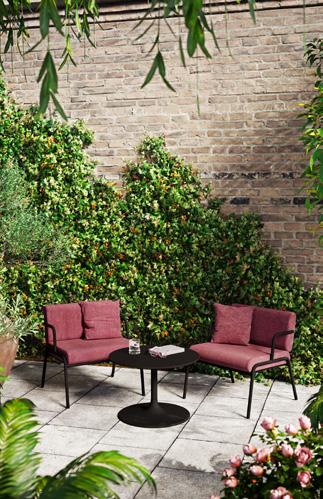
CASUAL by Bene
The CASUAL by Bene collection, which features a bench, a chair and a table, encapsulates our aim to design offices as spaces that strongly encourage people to connect and interact. Economical use of materials was a key factor in designing this collection. The frame for the Casual Bench has been optimised to make it exceptionally light without losing any of its stability. The cushions make it very comfortable to sit on and were also developed with reduced material use in mind.
THE EXTENT TO WHICH SUSTAINABILITY CAN BE INCORPORATED INTO THE INNOVATION AND DESIGN PROCESS IS EXEMPLIFIED BY THESE PRODUCTS
PIXEL by Bene
With its sustainable and innovative design, PIXEL can be a table, a bench, a stool, a stand or many other things. PIXEL makes it possible to design and transform spaces as needed. PIXEL is made of raw, untreated, PEFC-certified pine plywood –the use of wood testifies to our connection to the environment and nature. Each PIXEL has its own unique appearance and the grain gives each piece an individual character. All the plastics used in this product range are made from post-consumer recycled material, which reduces the use of new resources and gives the components a particularly long service life. In addition, all materials are sorted by type. The longevity is also favoured by the variety of possible applications. By using innovative lightweight panels, we have been able to reduce the amount of material used by 40% compared to similar products.

bFRIENDS
What is impressive about the sustainable accessories in the bFRIENDS series is that they combine extraordinary design with a low environmental footprint, showing just what is possible in terms of sustainability, material development and production. The bFRIENDS range features pen pots, stands, clips, books and decorative items in a range of colours and sizes. The collection is manufactured using the 3D printing process, in a decentralised production at two locations in Great Britain and the Netherlands. The products are made to order, thus avoiding warehousing and also waste. Electricity from renewable energy sources is used for production. The bFRIENDS items are made from the petroleumfree bioplastic PLA (polylactides), that can also be recycled. The plastic itself is both recycled and recyclable, so that each accessory can be reintegrated into the production cycle at the end of its life.
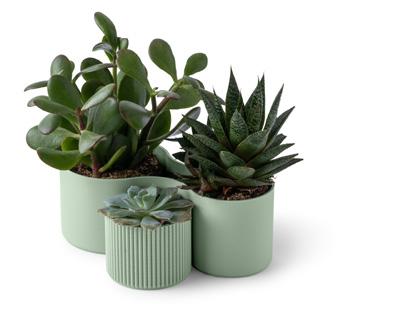
OVERVIEW | INNOVATION | RESOURCES AND PRODUCTION | EMPLOYEES | OBJECTIVES & OUTLOOK | 19
BENE COMPACT FACTORY
The heart of the company is in Waidhofen an der Ybbs. This is where development, design and production are united under one roof. On these approximately 11 hectares of company premises and 4.2 hectares (42,000 m2) of production hall we conceive and build our furniture.
In 2022, the following Bene products were created (with the respective percentage change compared to the previous year):
65,000 tables
3,000 pieces of collaborative furniture –from the Parcs and Docklands series
-9 %
6,400 linear metres of wall
+25 %
+32 %
28,000 third working levels and dividing walls
-3 %
5,000 pieces of executive furniture
+26 %
80,000 storage spaces
+12 %
25,000 chairs +4 %
81,000 pieces for meetings and workshops
+4 %
The majority of the products were manufactured in our production facility in Austria. For the production of some of Bene's seating furniture and cooperation furniture and the b FRIENDS accessories, we work closely with European companies.
9,900 accessoires bFRIENDS
With a clear commitment to sustainability measures, decisions are made throughout the company that favour the environment and society. Our quality and environmental management system (ISO 9001 and ISO 14001) has been consistently implemented since 2006. And our range of product certificates shows our commitment to healthy, safe and environmentally friendly furniture.
In 2022, Bene improved its FEMB certification from level 2 to level 3 (the highest level). This means that we were able to achieve more points in the impact areas of materials, energy and atmosphere, chemicals management as well as social responsibility.
OVERVIEW | INNOVATION | RESOURCES AND PRODUCTION | EMPLOYEES | OBJECTIVES & OUTLOOK | 21
MILESTONES
Furniture Industry Sustainability Programme. It is an independently certified sustainability programme that ranks highly, particularly in the UK.
Industrial production of office furniture begins
ISO 9001 – Quality management sets criteria for quality management systems. ISO 14001 – Environmental management sets criteria for environmental management systems.
Certification according to the standards EN ISO 9001 and EN ISO 14001

The Programme for the Endorsement of Forest Certification is the leading global alliance for promoting, ensuring and marketing active, sustainable and climate-smart forest management. Wood and wood products with the PEFC seal demonstrably originate from ecologically, economically and socially sustainable forestry.

Introduction of product life cycle assessments; PEFC certification; FISP certification


First Sustainability Report (Austrian Sustainability Reporting Award)
Company founded
Conversion to waterbased varnishes;
Austria Quality Seal for wood products
Award as Austrian Model Company; Austrian Ecolabel for products
Blauer-Engel (Blue Angel) certification; Bene joins respACT and UN Global Compact


Greenguard certification

The Austrian National Coat of Arms is awarded to companies for exceptional achievements. Companies that have rendered outstanding services to Austria as a business location.

The Austria Quality Seal shows at a glance that the certified company produces controlled, Austrian quality products of traceable origin.

The purpose of this German environmental label is to provide private consumers, institutional bulk consumers and public institutions with reliable guidance for environmentally conscious purchasing.
This certificate is for products that only emit low chemical emissions and contribute to healthier indoor environments.
The Austria Quality Seal is awarded by OQA – the Austrian Workgroup for the Promotion of Quality. With this quality seal, companies can prove that their extraordinary level of performance sets them apart from the rest.
The Ecolabel is a seal of quality awarded by the Republic of Austria for ecological business that identifies environmentally friendly products and services.
The UN Global Compact is the world’s largest corporate responsibility initiative. The participating organisations commit to following the ten principles in the areas of human rights, labour standards, the environment and corruption prevention.
1790 1951 1996 2006 2008 2009 2010 2011 2012
The institution Forest Stewardship Council® ensures that forests are used in accordance with the social, economic and ecological needs of present and future generations.
FSC certification
Second Sustainability Report
The EU Ecolabel serves as a uniform label for environmentally friendly products and services. It was initiated by the European Commission in 1992.
Launch of the international “Gesund bei Bene” (Healthy at Bene) programme
Products with the GS mark comply with the requirements of the German Product Safety Act (ProdSG). The GS mark is the only certification mark governed by statute in Europe for product safety.
Third Sustainability Report
Award as Austria’s best training company of the year for joiners
ISO-38200 certification; Award as Austrian Lead Company


Guarantees a monitored chain of custody for wood and woodbased products, cork and woody materials; the relevant requirements for monitored supply chains are strict. This ensures traceability, proof of origin and legality.
FEMB level certification
Completion of the first photovoltaic system at Bene
LEVEL is based on the FEMB sustainability standard; it is the first European certification to cover all the relevant aspects of sustainability.
Bene certified as a Great Place to Work.

The manufacturer complies with safety, health and environmental protection requirements by means of a self-declaration. Based on the preparation of a conformity assessment and technical documentation, the Declaration of Conformity may be issued, and the CE mark affixed to the product.
Quality Office is a quality mark that combines all criteria for high-quality office furniture, competent advice and customised service. The furniture is certified in ten different categories.

OVERVIEW | INNOVATION | RESOURCES AND PRODUCTION | EMPLOYEES | OBJECTIVES & OUTLOOK | 23
2014 2016 2017 2018 2019 2020 2021 2022
RESOURCES & PRODUCTION
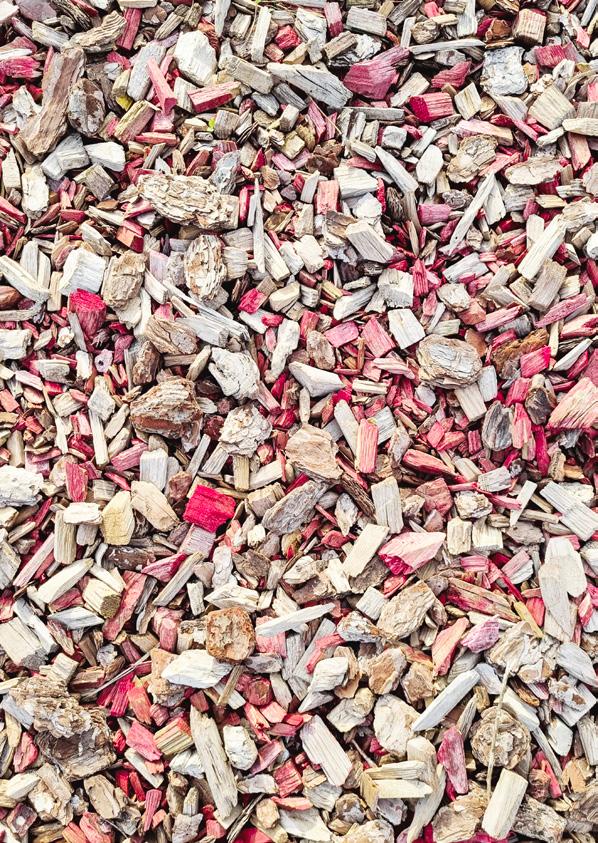
RESOURCES PRODUCTION
25
65% of the materials we use are already recycled, meaning they have already served a purpose before being built into long-lasting Bene products.
The environmental impact of PIXEL box production was further reduced during the reporting period; the adjustment legs were replaced with plastic made from 100% postconsumer recycled material.
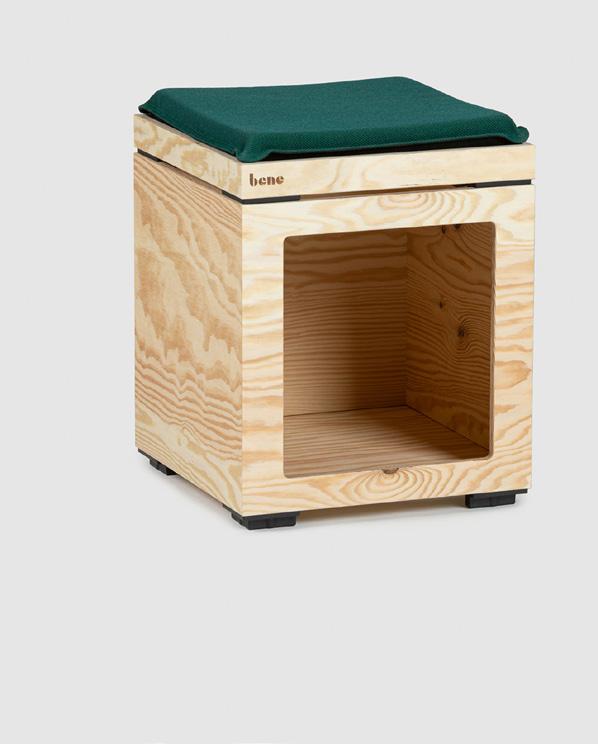
WEIGHT 6 KG USE OF RENEWABLE MATERIALS 96. 1 % RECYCLING SHARE 2.5 % EASE OF DISASSEMBLY 100 % RECYCLABILITY 100 % HEATING VALUE 32.4 KWH GREY ENERGY 35.6 KWH WATER-FOOTPRINT 4.9 KG STORED CARBON DIOXIDE 10.6 KG CO 2 CO 2 -FOOTPRINT 2.6 KG CO 2 e
EXAMPLE PIXEL BOX
BENE PRIORITISES ENVIRONMENTALLY FRIENDLY MATERIALS
MATERIALS
65% of the materials we use are already recycled, meaning they have already served a purpose before being built into long-lasting Bene products.
For each of its products, Bene prepares a life cycle assessment with all the data, in particular on the following aspects: Weight, CO 2 footprint, use of renewable materials, share of recycled materials, ease of disassembly, recyclability, heating value, grey energy (from the production of raw materials / upstream chain), water footprint, stored carbon.
RAW MATERIALS AND SUPPLIERS
Most suppliers (around 95%) are located within a 500 km radius of our production site in Waidhofen an der Ybbs. Bene’s established purchasing policy applies to our entire supply chain. Our purchasing department makes decisions on a daily basis that influence the sustainability and quality of our products. It also connects our suppliers, most of whom are located in European countries and therefore have to comply with minimum ecological and social requirements. Additionally, Bene conducts its own supplier audits and assessments – on quality, environmental factors and occupational health and safety aspects.
Of the raw material that Bene uses most is wood. Sustainable forestry is the inception and foundation of our supply chain for this material. This ensures the long-term supply of wood for future generations.
OVERVIEW | INNOVATION | RESOURCES AND PRODUCTION | EMPLOYEES | OBJECTIVES & OUTLOOK | 27
As a responsible industrial company, we focus on efficient and effective use of resources.
BENE’S JOURNEY FROM THE FOREST TO PRODUCTION (2022)
10,800 t wood and scrap wood used (over 90% of from certified forestry)
Types of tabletops:
706.700 m 2 Melamine chipboard
76.900 m 2 Soft fibre
53.900 m 2 Raw chipboard
36.900 m 2 MDF
23.000 m 2 Other (laminate, lightweight chipboard…)
20.700 m 2 Plywood
5.000 m 2 Compact
Products:
Desks
Storage spaces
Furniture for collaboration
Chairs
Meeting and workshop furniture
Room systems
Third working levels and dividing walls
Our objective is to make the circular economy a reality at all levels. Many of the materials we use are already recycled. Let’s take a closer look at our tabletops as an example:
5
1 2 3 4
The melamine chipboard is produced in the chipboard plant. It comprises 95% renewable and 75-100% already recycled materials.
When the table has reached the end of its life and can no longer be used, it can be completely disassembled into its components. (In the case of a Level combination desk with a T-leg in the size 1,600 x 1,200 mm, 99.6% of the materials can be recycled and used again as raw materials.) The tabletop is then taken to a recycling centre.
OVERVIEW | INNOVATION | RESOURCES AND PRODUCTION | EMPLOYEES | OBJECTIVES & OUTLOOK | 29
The tabletop is cut to size at Bene’s factory and prepared for the table.
This can then be assembled at the desired location.
There it is returned to the chipboard factory, where it is again shaped as a new board.
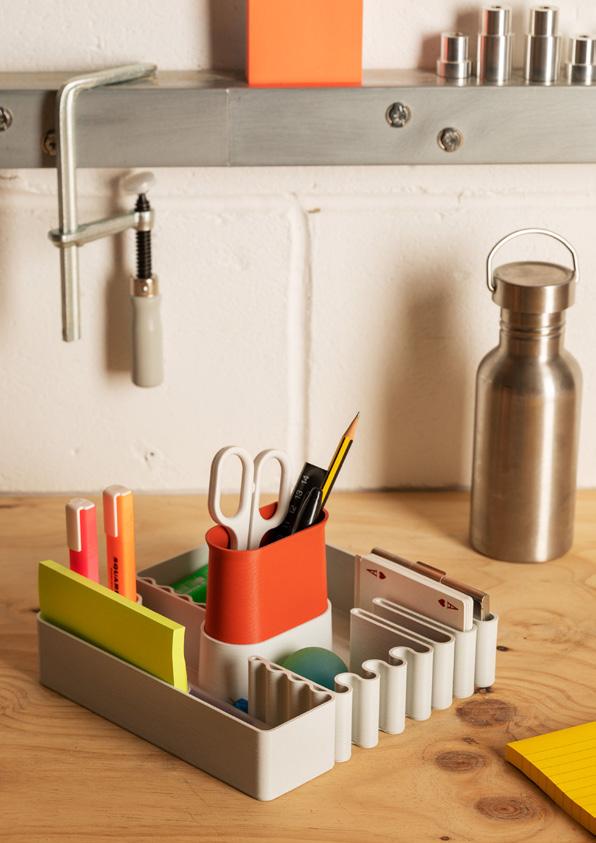
bFRIENDS
bFRIENDS products represent an important step towards achieving a comprehensive circular economy. Already-used plant-based raw materials (some would consider them waste) are turned into office and home accessories using 3D printing – an astounding 9,900 pieces in 2022
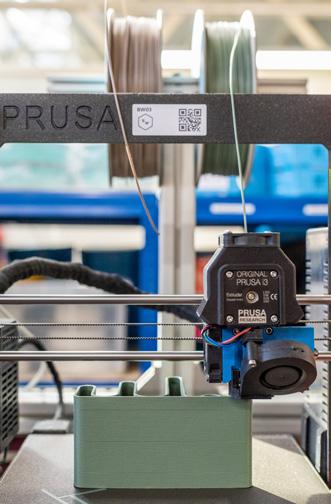
OVERVIEW | INNOVATION | RESOURCES AND PRODUCTION | EMPLOYEES | OBJECTIVES & OUTLOOK | 31
The following materials and quantities (in tonnes) were used in the manufacture of our products:
PACKAGING AND TRANSPORTATION
The packaging materials used are divided as follows:
ELECTRICITY AND ENERGY
On average, 90% of the cardboard and paperboard are recycled materials. The transport and assembly of the furniture is handled by the company BGO Montage und Logistik, which belongs to BGO Holding. Every day, approximately 16 swap bodies, 1 semi-trailer, 4 vans and 1 pick-up truck are loaded with Bene products and sent on their way to the companies that use them to furnish and decorate their offices.
In 2022, 117,000 litres of fuel were used for the passenger cars in the company fleet; these are powered by combustion engines (i.e. this was for passenger transport). The company-owned vehicles for transporting goods consumed 14,000 litres of fuel. A total distance of 2,240,000 km was covered, and 449 t of CO 2e were emitted. Before the pandemic, however, in 2019, fuel consumption was twice as high.
Year after year, old lighting technologies are replaced by LED bulbs. During the reporting period, we were able to convert the lighting in the Paris and Vienna offices, as well as in individual areas at the Waidhofen location. The factory office and social rooms will be switching next at the main office. Since 2020, the electricity for our Austrian locations has come exclusively from hydropower. With the aim of using more electricity from our own generation, Bene installed a photovoltaic system with almost 100 kWp in 2022. Bene is thus committed to using renewable sources in this area as well. This makes us more independent and helps the environment. Over the past five years, our carbon footprint – all emissions from production, electricity supply, transport, provision of materials and waste recycling – has changed as follows:
2018 2019 2020 2021 2022 CO 2 footprint per item produced in Waidhofen (in kg) 105 99 82 83 83
2021 2022 Wood 10,393 10,782 Iron/steel 2,380 3,071 Glass 577 737 Packaging 614 707 Aluminium 413 531 Synthetics 377 381 Compact 139 121 Electronic components 69 115 Other provisions 265 272 2021 2022 Additives 147 128 Textiles 32 39 Adhesives 30 29 Zinc 30 41 Varnishes 18 28 Staining 2 6 Concrete 6 1 Leather 0.5 0.2 Iron casting 0.2 0.2 Cardboard 215 t Paperboard 160 t Plastic film 27 t Foam padding 4 t Synthetic straps 3 t
WASTE MANAGEMENT
The majority of the materials used can be reused, and we also follow a waste management concept. Waste management officers working for Bene ensure that this uniquely developed concept is implemented and that all legal regulations are also complied with.
In 2022, less hazardous waste was produced than in previous years because fewer lead batteries from forklift trucks were disposed of. Furthermore, two waste categories can now be classified as non-hazardous as a result of a reassessment.
Non-hazardous waste
Hazardous waste (according to the Austrian Ordinance on the Determination of Hazardous Waste and Problematic Substances [Festsetzungsverordnung]) Waste materials (recyclables)
The waste per piece produced has developed over the years as follows:
OVERVIEW | INNOVATION | RESOURCES AND PRODUCTION | EMPLOYEES | OBJECTIVES & OUTLOOK | 33
Summary (in t) 2021 2022 Non-hazardous waste –not recyclable 234 292 Non-hazardous waste – recyclable 5, 283 5,799 Hazardous waste 13 3 2018 2019 2020 2021 2022 Waste from value added per piece produced (in kg) 27.11 22.11 22.80 22.37 21.79 2021 2022 1.000 2.000 3.000 4.000 5.000 6.000 7.000 t
Cutting waste is used for heating purposes in the company's boilers. Another part is returned to the manufacturer of the wood-based panel for reuse in the production process.
EMPLOYEES
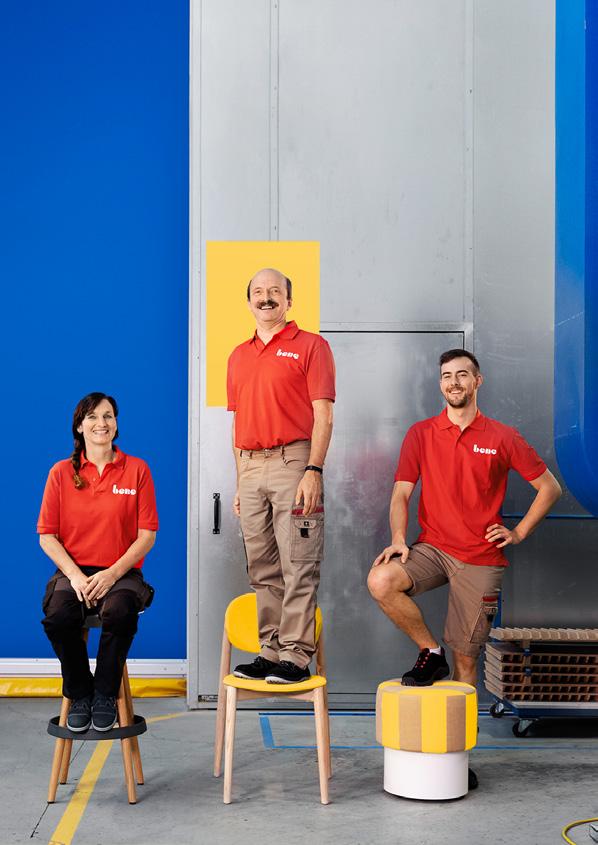
EMPLOYEES
People are at the centre of our business. At Bene, we understand our craft and work with precision and with a passion for detail.
35
People are at the heart of what we do. Without people, we would not be a company of the future. At Bene, we are skilled in what we do and produce furniture with precision and attention to detail. No wonder, then, that our apprentices are often successful – not only in their work but also in competitions. Last year, they secured first and fifth place in the national apprentice competition and two victories at regional level. Since 1995, we have trained 79 carpentry apprentices – and thus skilled workers in the region. 36 of them continue to work at Bene. In 2021 and 2022, ten carpentry apprentices graduated.
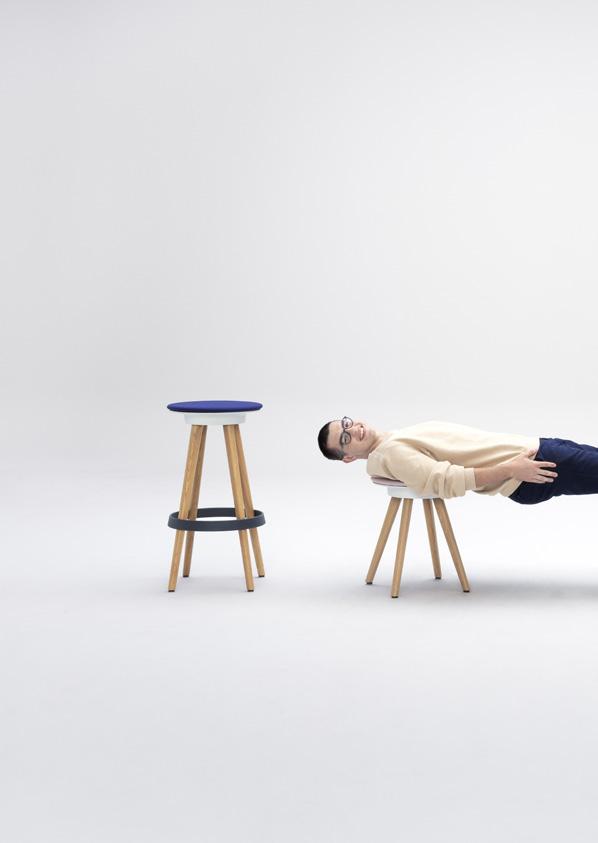
Bene has a total of 522 employees in Austria (including 21 leasing employees) and another 160 around the world. About twice a year, all employees are informed about current developments in a business update.
Of the 661 employees (excluding leasing), 91% have no management responsibilities; 9% are in management. 1 in 5 managers is female. As of the end of 2022, there were 15 registered disabled employees in the Bene Group. Bene GmbH is an Austrian company; the Bene Group comprises our global organisation.
In 2022, employees took advantage of training and further education opportunities that were not available in the years before due to the pandemic. Bene employees profited from a total of 8,280 hours of training and further education.
501 people work in Austria. The other 160 employees work in the sales offices abroad, mainly in Europe (Belgium, Germany, France, UK, Italy, Ireland, Poland, Switzerland), as well as in the United Arab Emirates and India.
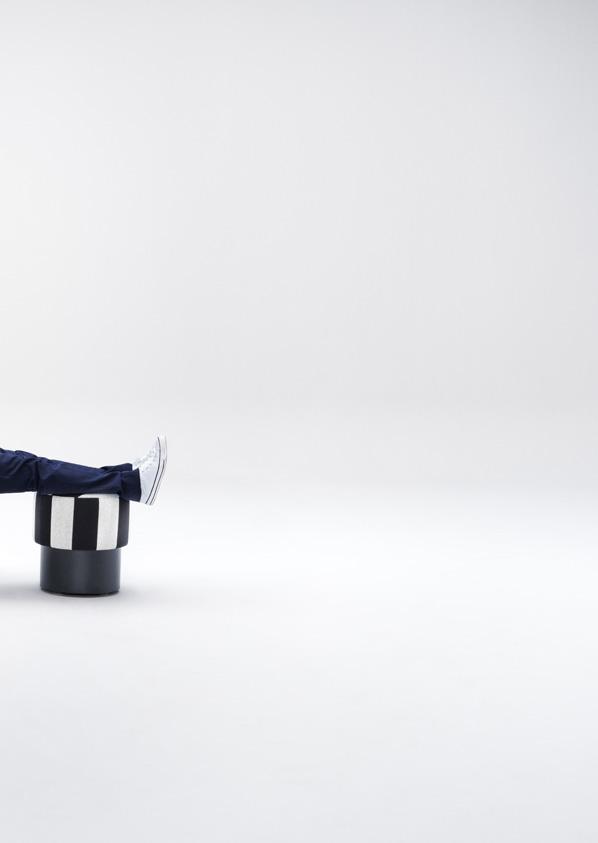
284 2.000 4.000 6.000 8.000 hours 531 839 1,124 300 2,070 8,280 2016 2017 2018 2019 2020 2021 2022 OVERVIEW | INNOVATION | RESOURCES AND PRODUCTION | EMPLOYEES | OBJECTIVES & OUTLOOK | 37
interaction with each other characterises our actions and has a positive effect both internally and externally. Bene Group Partial retirement 17 Parental part-time work 22 Disabled beneficiaries 15 Apprentices 12 Functions Works councils 16 Youth Councils 2 Education and training hours
Respectful
In 2021 and 2022, parents took a total of 239 months (corresponding to 20 years) off for parental leave (parental leave, paternity leave, maternity leave). Fathers took 11% of this time. Bene Group’s entire employee turnover decreased slightly in 2022: from 17 to 13%.
Our blue collar and white collar works councils stand by our employees in word and deed. Part-time parental leave? Semi-retirement? Sure! 96 employees benefited from these in 2022.
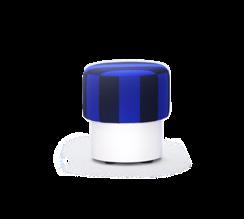
We place particular emphasis on perfect and modern workplace design for our employees. That is why, for example, we have our own “Gesund bei Bene” (Healthy at Bene) programme. This means that we continuously offer exercise and relaxation programmes as well as campaigns on healthy nutrition.
As of autumn 2022, a new cycle path along the “Ybbstalbahn” railway route runs directly past Bene’s premises. Bene also specifically promotes cycling with our “job bike” programme. At least 120 employees have already signed up for it, enabling them to enjoy a new bicycle in return for an attractive usage fee. This increases the number of employees who choose to bike to work and also motivates them to be physically active in their free time.
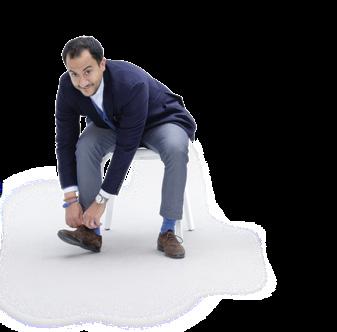
2016 2017 2018 2019 2020 2021 2022 Number of part-time employees 96 97 121 123 125 121 96 Share (in %) 12.9 13.3 15.3 15.0 17.1 18.1 14.1
Receiving the title of “Great Place to Work” in 2022 reflects Bene’s friendly and supportive corporate culture. Bene was awarded the title in Austria, Germany, the UK and India. And for good reason, because at Bene, our top priorities are:
Team spirit: positive working environment and corporate culture – family-friendly, supportive, full of humour
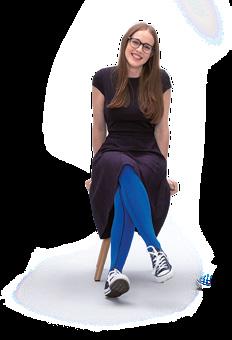
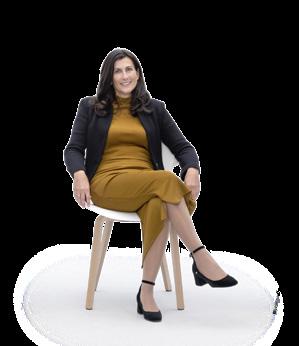
Freedom and scope: taking responsibility, creating things independently and having your say
Passion: passion, joy, thematic commitment
Pride in our brand: identifying with the brand – “Made in Austria”, the company’s rich tradition, innovation, design awards
Variety: varied business segment, international dimension and innovation
Working conditions: flexible working hours, home office, good infrastructure links, a family-friendly attitude, a flat hierarchy
OVERVIEW | INNOVATION | RESOURCES AND PRODUCTION | EMPLOYEES | OBJECTIVES & OUTLOOK | 39
Our corporate culture promotes performance as well as personal development.
OBJECTIVES &
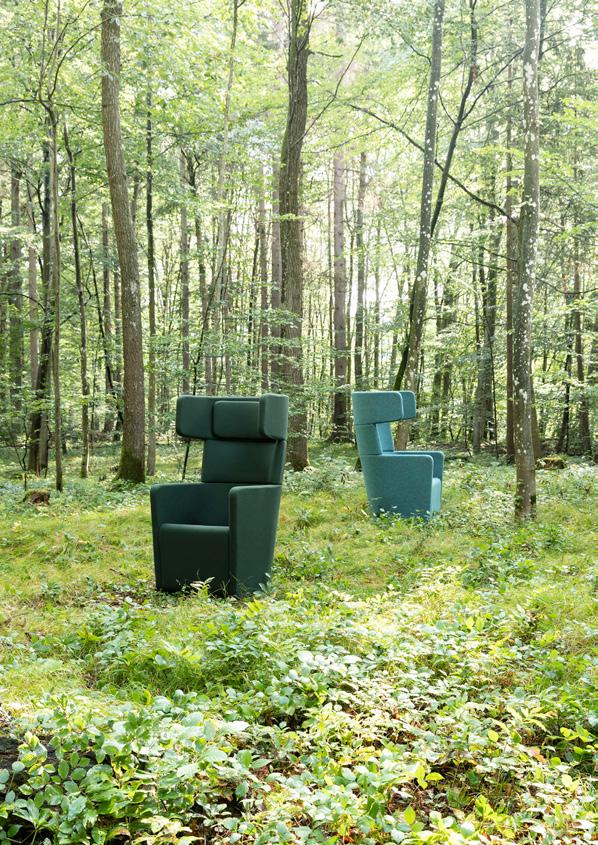
& OUTLOOK
Bene's growth is sustainable, growth oriented, innovative and leading in Europe.
41
OUR COMMITMENT CONTINUES
We have prepared a comprehensive set of new measures for the near future. For example, by 2024, in the area of procurement, we will be focusing on packaging (recyclable packaging, use of material from sustainable forestry) as well as on increasing the recycling share and the ease of disassembly of our products in production. This represents a piece in the jigsaw puzzle of our vision to manufacture completely recyclable products. In the company fleet, we are gradually converting to electric drives. The roof of the production hall will be renovated and equipped with a photovoltaic system that will significantly contribute to our electricity supply with an output of 3 MWp (or 3,000 kWp). As part of the work carried out on the roof, we will also improve the insulation, in turn reducing our heating energy requirements.
In 2023, part of the sealed area at the Waidhofen site will be “unsealed”, making room for a biodiversity paradise for plants and insects, as well as for all of Bene employees. Five themed islands invite people to work and hang out there. And for the first time in the company’s history, we will have our own bees that will enjoy the flowering scented plants across 130 m2 of flower meadow and beds. Crops with yields for snacking, such as blueberries and grapes, will also feature. Currently, four-fifths of the company’s site in Waidhofen are sealed (built on) – on the remaining fifth, nature can flourish with meadows, trees and shrubs.
Sustainability criteria will be a focal point in the selection of newly used textiles. Bene develops modular products that can be dismantled and repaired, meaning customers can replace spare parts themselves if necessary. We are constantly striving to ensure that all products are recyclable and ideally made entirely from recycled materials. Textiles being used for the first time must meet various minimum criteria in accordance with a sustainability scheme before they can be used at Bene. Even though we cannot predict the future, we are still sure of one thing: the digital transformation and the climate crisis will continue to shape and impact our everyday working lives. Bene develops smart office concepts that adapt to the strategies and requirements of its customers, as well as to their environmental conditions. Sustainability is high on Bene’s agenda at all levels: both in small teams and in corporate decision-making. For the future, we are striving to achieve the following:
To be one of the most sustainable companies in our industry by 2030. To be CO 2 neutral (Scope 1 and 2) and all our new product lines to be recyclable by 2030 at the latest. In an effort to always offer sustainable products and services to our customers, we are committed to sustainable action and encouraging and practising sustainable actions such as environmental protection, primarily circular economy, social diversity and inclusion.
These sustainability goals will shape our corporate activities until 2030:
1. Aligning the entire value chain with the principles of sustainability –in particular:
- Developing new product lines that are recyclable
- Developing an action plan to reduce all emissions (Scope 1-3)
- Consistently using sustainable and recyclable materials
2. Integrating sustainability into our corporate culture – in particular:
- Raising awareness for sustainability and social responsibility
- Promoting variety and inclusion
- Ensuring optimal working conditions for everyone at Bene
OVERVIEW | INNOVATION | RESOURCES AND PRODUCTION | EMPLOYEES | OBJECTIVES & OUTLOOK | 43
Bene GmbH
Schwarzwiesenstraße 3
3340 Waidhofen an der Ybbs
Austria
bene.com
Tel. +43 7442 500-0
office@bene.com
VAT no. ATU70065136
FN 444783v
GLN no. 9110022782844
Eori no. ATEOS1000072483
DUNS no. 300486498
Tax no. 09-258/3699
IPPC-Nr. AT-30221
@bene.office
@beneoffice
/company/bene
/beneoffice
/beneoffice
V1 2023



























